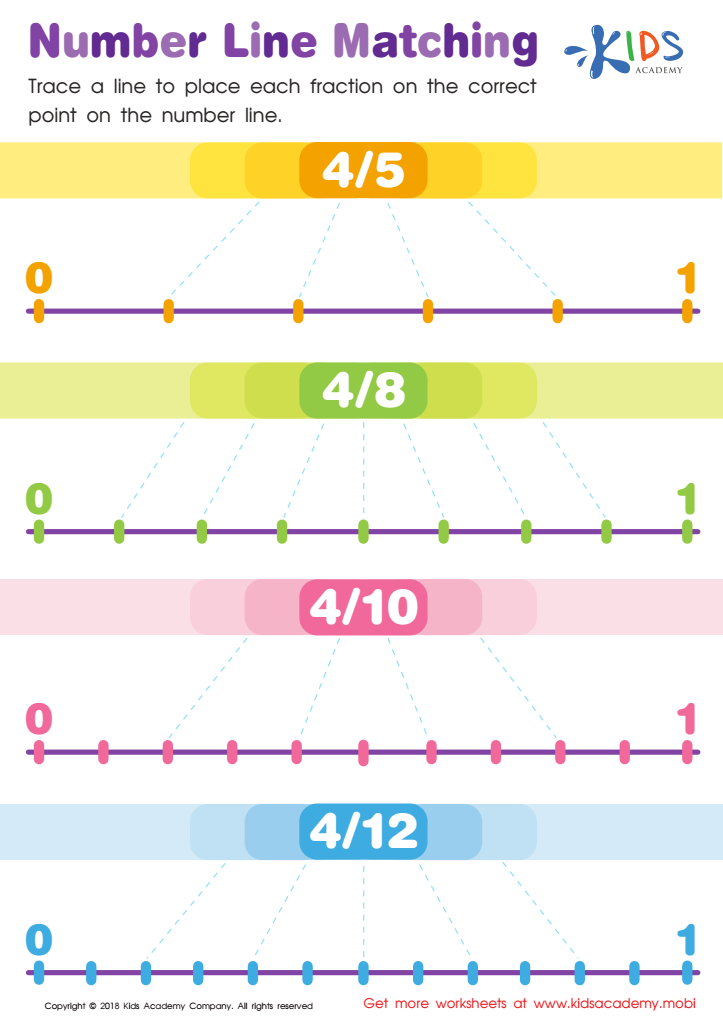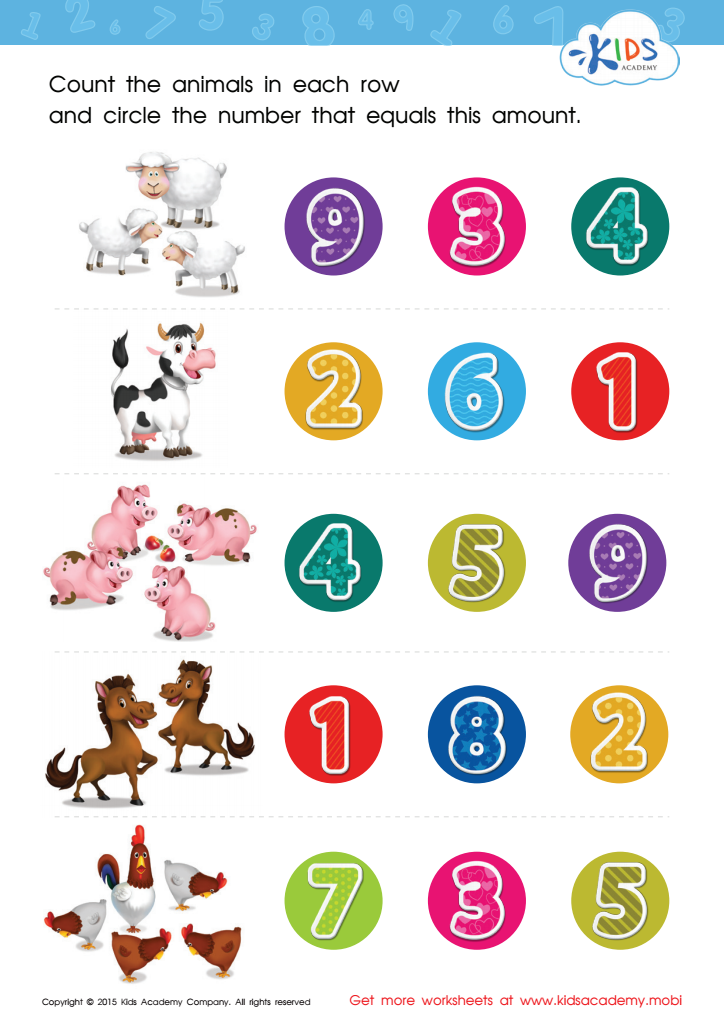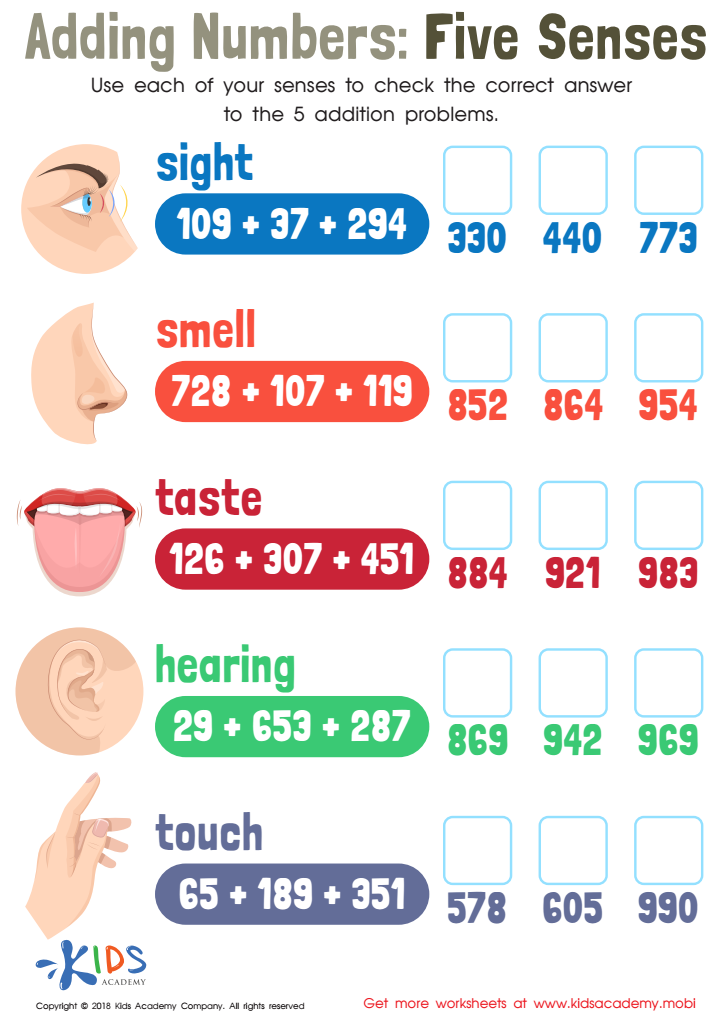Associative learning Normal Numbers Worksheets for Ages 3-8
3 filtered results
-
From - To
Unlock your child's potential with our Associative Learning Normal Numbers Worksheets designed for ages 3-8! These engaging worksheets promote essential math skills through fun, interactive activities that strengthen number recognition and counting abilities. Each worksheet encourages children to associate numbers with everyday objects and situations, enhancing their understanding of numerical concepts. Ideal for preschool and early elementary students, our resources help solidify foundational math skills essential for future learning. Encourage curiosity and confidence in mathematics as your little ones explore colorful, age-appropriate exercises. Start your child's mathematical journey today with our comprehensive collection of Associative Learning Normal Numbers Worksheets!


Number Line Matching Worksheet


Count and Match 1 – 5 Math Worksheet


Adding Numbers: Five Senses Worksheet
Associative learning and understanding normal numbers are vital for children aged 3-8 as they form the foundation for mathematical comprehension and problem-solving skills. Associative learning refers to the cognitive process where children connect ideas, concepts, and experiences. When children learn to associate numbers with objects or quantities, they enhance their ability to recognize patterns, establish relationships, and understand basic math operations. This foundational skill aids in building confidence as they progress in their education.
Normal numbers, or the concept of understanding the patterns and relationships among numbers, is essential for kids at this age. It helps them grasp the significance of numbers in their everyday lives, from counting toys to recognizing shapes and sizes. By fostering these skills early on, educators and parents can nurture a child's natural curiosity and logical reasoning.
Encouraging associative learning through play, interactive activities, and real-world applications makes math engaging and relatable. This active involvement not only improves numerical fluency but also motivates children to explore and ask questions, laying the groundwork for future academic success. Ultimately, prioritizing these skills in early education leads to stronger learning outcomes, fostering a love for math that benefits children both in and out of the classroom.
 Assign to My Students
Assign to My Students
















